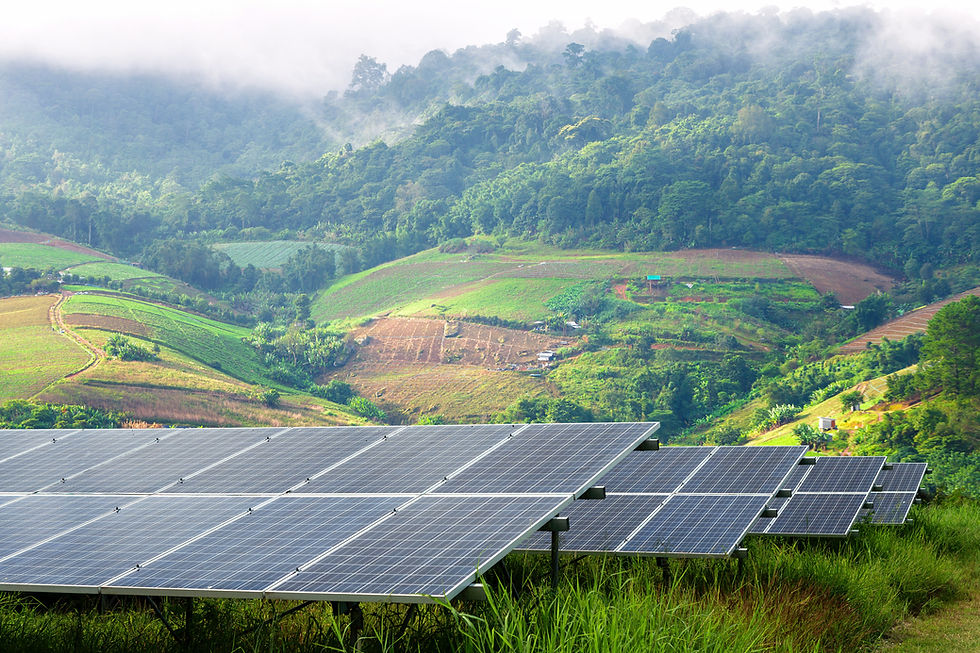Patents and Climate Change: How can Intellectual Property Rights Incentivize Green Technology Innovation
- Aug 7, 2024
- 4 min read

Overview
Patentable inventions play an important role in promoting innovation and investment in green technologies. This is because patents are responsible for granting companies temporary exclusive rights, allowing them to profit from their inventions for a considerable duration in a manner that accommodates technological diffusion and development.
For instance, did you know that collaboration between governments and startups can help tackle climate challenges while supporting small businesses? According to a University of Cambridge study, government collaboration in green-tech development increased patenting activity among new green technology startups in the United States by more than 73% on average.
Furthermore, since each published patent adds to a growing library of innovative and trustworthy information on cutting-edge technologies. This collection becomes an invaluable resource for developing countries wishing to incorporate these kinds of technologies in their state. For instance, solar energy innovations developed in the United Kingdom can be applied in solar-rich countries such as Egypt and Libya, facilitating the global diffusion of green technologies.
Scope and Meaning of Green Technology
Green technology is often included under the umbrella of "open innovation," in which businesses collaborate with external stakeholders to improve innovation. Because of the multifaceted nature of environmental technologies and the global impact of climate change, open innovation anchored by strong intellectual property rights protection is critical for boosting the invention and diffusion of these technologies.
Role of WIPO in Incentivizing Green Technology Innovation
In the year 2013, the World Intellectual Property Organization in an initiative to combat climate change launched WIPO GREEN, a comprehensive online marketplace for the development and dissemination of green technology. This platform addresses global warming and other pressing environmental issues by bridging the gap between technology owners and developers with individuals looking to commercialize, license, and distribute these innovations to address.
This marketplace was a tremendous success with WIPO announcing in 2019 that the platform had reached 3,000 entries. By protecting intellectual property (IP) and monetary inventions in the same berth in a manner that incentivizes developers to commit their innovations to ventures and partnerships, WIPO has undoubtedly made a tangible difference in the fight against global climate change.
Role of Collaboration in Incentivising Patenting for Green Technology Innovation
Collaborative arrangements between both the private and public sectors, as well as research institutions, have effortlessly accelerated the development and spread of green technologies. WIPO GREEN is one of such agreements. Another notable example is the joint effort undertaken by IBM, Nokia, Sony, and Pitney Bowes' most commonly known as the “Eco-Patents Commons initiative”.
This not for profit initiative, founded in the year 2008, provides royalty-free access to patents covering environmentally friendly inventions, promoting the spread of valuable green technologies such as recycling, water conservation, energy conservation and pollution prevention.
Green Technology Innovation Patenting Trends in India
From the year 2016 to 2021, Indians have seen a monumental rise in green technology patents, with the patent office awarding every other patent in this sector. For instance, during the year 2016 to 2021 there were more than 61,000 green technology patents filed, out of which 63% focused on waste management and 26% on alternative energy production. The remaining proposals covered energy conservation, transportation, nuclear power, agriculture, and forestry.
All in all India's patenting activity, with one out of every two green tech patents awarded, has shown the country's commitment to the growth of renewable energy and sustainability.
However, in terms of measures to encourage green technology patenting, such as offering rewards to innovators, accelerating the examination process, lowering renewal costs for preserving green tech IPs, etc., the current regime has a long way to go before catching up to other significant nations.
Consequently, it is imperative that India's intellectuals, lawmakers, and business associations enact laws that support green patenting and tackle the urgent problem of climate change.
A Look at Global Trends
International intellectual property organizations are increasingly supporting innovations that combat climate change. Globally, patent applications for green energy and energy-efficient technologies have increased by nearly 120% between 2006 and 2020 under the International Patent Cooperation Treaty (PCT).
Moreover, many countries have also launched initiatives to promote research and development in green technology. Starting in 2009, several nations including the UK, Australia, Israel, Japan, South Korea, and the US introduced expedited review processes for green tech patents, with others like Canada, Brazil, China, and Taiwan following suit in subsequent years.
What Can We Do for You?
At Patenti, we've seen firsthand how identifying, protecting, and valuing important intellectual property has enabled green tech businesses to engage in additional research and development while also disseminating their technology through partnerships and collaborative projects. Our patent mapping technology can help:
- Secure additional funding for a green technology business to bring a prototype to market.
- Secure growth financing with key IP as collateral.
- Enable collaborative green efforts by ring-fencing and monetizing IP committed to the endeavor.
- Prevent the loss of creative intellectual property by selling IP assets from insolvent enterprises to facilitate technology commercialization.
Contact the Patenti team today to learn how we can assist you and your business with all levels of intellectual property and discover how we can help you protect and leverage your green technologies for a sustainable future!




Comments